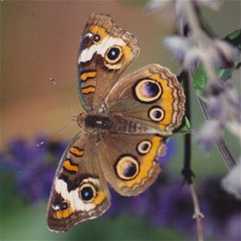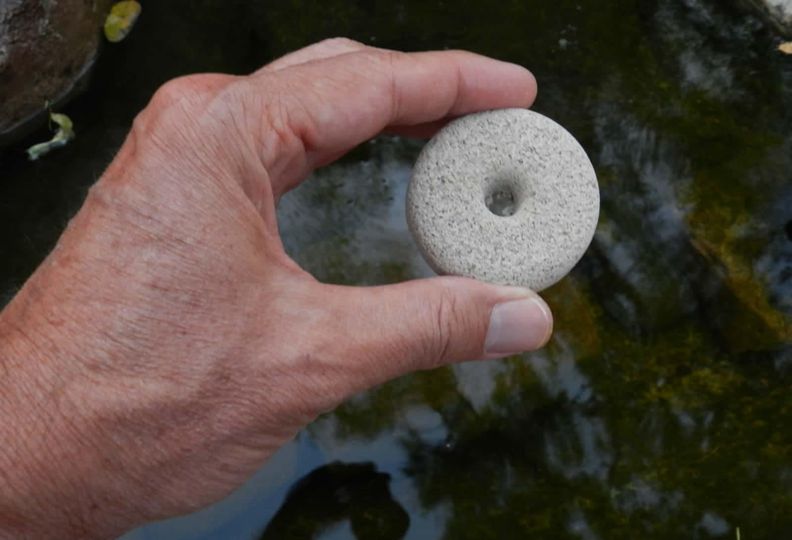- Sections :
- Crime & Public Safety
- Restaurants & Food
- Sports
- More
Categories
Native Milkweed Collaboration

THE WOODLANDS, TX -- Natures Way Resources has partnered with The Woodlands Township and volunteers from the Heartwood Chapter of Texas Master Naturalists to grow milkweed to support the Pollinator Habitat Initiative Program of The Woodlands Township.
This long-term collaboration will supply The Woodlands Township with milkweed plants for projects in open areas, select parks, grounds of local nonprofit facilities and other appropriate locations where Pollinator Habitat Gardens are being created to fulfill the Township’s desire to support the nationwide initiative to increase and enhance gardens for pollinators in general, and the monarch butterfly in particular.
This collaboration is expected to produce up to 13,000 milkweed plants of several different species (Green, Common and Tuberosa) over the summer and fall of 2019, and to continue to create an ongoing supply of this critical plant for monarchs over the next few years.
Not only has Natures Way Resources provided the growing space for this project, but has also donated all supplies for setup, over 10 yards of organic high quality soil, all pots and trays and over 100 hours of support and guidance given by nursery personnel.
If you are not a resident of The Woodlands and are looking for milkweeds, Natures Way Resources currently has Asclepias curassavica (Tropical milkweed) and Asclepias tuberosa (Butterfly Weed) available for sale. We will also have Asclepias viridis (green milkweed) and Asclepias syriaca (common milkweed) available for sale in the fall. All plants were grown organically by nursery personnel and no pesticides have been used.
Those who live in The Woodlands and have registered their gardens will receive the milkweed plants for free, in addition to most of them being planted in public spaces throughout The Woodlands. “Those who have already signed up and received their vouchers can pick up their milkweed plants either at Nature’s Way Resources or Alspaugh’s Ace Hardware of The Woodlands along Kuykendahl Road. Also, a voucher can also be obtained at Woodlands Landscaping Solutions on Sept. 28 at Rob Fleming Park.
To learn more about the milkweed giveaway or Plant for Pollinators Program https://www.thewoodlandstownship-tx.gov/…/Plant-for-Pollina… of the Township,contact the Environmental Services Department at enviro@thewoodlandstownship-tx.gov or call 281-210-3800.
Asclepias (milkweed) are sun-loving plants that are essential perennials for monarch butterflies, providing food for caterpillars and nectar for adult butterflies. They remain dormant until later in the spring than many other plants and bloom from mid-summer into early fall. Their milky sap makes them rabbit and deer resistant. But, they have a quirky nature, requiring patience and acceptance.
For plant care, milkweed can be divided into two groups: Asclepias tuberosa (orange butterfly milkweed) and all other species, including Asclepias syriaca (common milkweed) and Asclepias viridis (green milkweed) and Asclepias curassavica (tropical or Mexican milkweed).
Asclepias tuberosa: Plant in sandy or gravelly soil with a few handfuls of compost. Do not plant into rich, highly-amended soil. Requires full sun and infrequent, deep waterings.
All Other Asclepias: Can tolerate a wide range of soil types, gravel mulches including clay (can also handle more compost enriched soils). Full to part sun (at least 4-6 hours). They can also handle more moisture.
When planting, and after planting, do not divide or disturb the milkweed’s long, carrot-like tap root. Oftentimes, milkweed will not grow much its first season in the ground. Take care not to overwater young transplants. After their second growing season, the plants will begin to get bigger and more robust and need deep, but infrequent watering.
To encourage re-seeding, leave stems intact over the winter. In mid-spring, remove old stems just above ground level. Fertilize just once in fall with organic fertilizer (like MicroLife). Naturalized plants don’t need additional fertilization.
Most milkweed species are late to wake up in the spring. BE PATIENT! The roots and woody crown are alive, just waiting for consistently warm weather to wake-up and grow.
Insecticides should never be used in or surrounding pollinator habitat. Limit use of herbicides within and surrounding the habitat only to control invasive or noxious weeds. Yellow aphids and milkweed bugs are common on all milkweeds.
To learn about control or information on milkweeds in general, please visit any of the sites listed below:
https://www.monarchwatch.org/
https://monarchbutterflygarden.net/
https://www.saveourmonarchs.org
https://monarchjointventure.org
https://journeynorth.org
https://gardenerspath.com/plants/perennial/asclepias/
https://www.wildflower.org/…/TPWD-Identification-Milkweeds-…
https://www.joyfulbutterfly.com
#natureswayresources #nativemilkweed #tropicalmilkweed#mexicanmilkweed
This long-term collaboration will supply The Woodlands Township with milkweed plants for projects in open areas, select parks, grounds of local nonprofit facilities and other appropriate locations where Pollinator Habitat Gardens are being created to fulfill the Township’s desire to support the nationwide initiative to increase and enhance gardens for pollinators in general, and the monarch butterfly in particular.
This collaboration is expected to produce up to 13,000 milkweed plants of several different species (Green, Common and Tuberosa) over the summer and fall of 2019, and to continue to create an ongoing supply of this critical plant for monarchs over the next few years.
Not only has Natures Way Resources provided the growing space for this project, but has also donated all supplies for setup, over 10 yards of organic high quality soil, all pots and trays and over 100 hours of support and guidance given by nursery personnel.
If you are not a resident of The Woodlands and are looking for milkweeds, Natures Way Resources currently has Asclepias curassavica (Tropical milkweed) and Asclepias tuberosa (Butterfly Weed) available for sale. We will also have Asclepias viridis (green milkweed) and Asclepias syriaca (common milkweed) available for sale in the fall. All plants were grown organically by nursery personnel and no pesticides have been used.
Those who live in The Woodlands and have registered their gardens will receive the milkweed plants for free, in addition to most of them being planted in public spaces throughout The Woodlands. “Those who have already signed up and received their vouchers can pick up their milkweed plants either at Nature’s Way Resources or Alspaugh’s Ace Hardware of The Woodlands along Kuykendahl Road. Also, a voucher can also be obtained at Woodlands Landscaping Solutions on Sept. 28 at Rob Fleming Park.
To learn more about the milkweed giveaway or Plant for Pollinators Program https://www.thewoodlandstownship-tx.gov/…/Plant-for-Pollina… of the Township,contact the Environmental Services Department at enviro@thewoodlandstownship-tx.gov or call 281-210-3800.
Asclepias (milkweed) are sun-loving plants that are essential perennials for monarch butterflies, providing food for caterpillars and nectar for adult butterflies. They remain dormant until later in the spring than many other plants and bloom from mid-summer into early fall. Their milky sap makes them rabbit and deer resistant. But, they have a quirky nature, requiring patience and acceptance.
For plant care, milkweed can be divided into two groups: Asclepias tuberosa (orange butterfly milkweed) and all other species, including Asclepias syriaca (common milkweed) and Asclepias viridis (green milkweed) and Asclepias curassavica (tropical or Mexican milkweed).
Asclepias tuberosa: Plant in sandy or gravelly soil with a few handfuls of compost. Do not plant into rich, highly-amended soil. Requires full sun and infrequent, deep waterings.
All Other Asclepias: Can tolerate a wide range of soil types, gravel mulches including clay (can also handle more compost enriched soils). Full to part sun (at least 4-6 hours). They can also handle more moisture.
When planting, and after planting, do not divide or disturb the milkweed’s long, carrot-like tap root. Oftentimes, milkweed will not grow much its first season in the ground. Take care not to overwater young transplants. After their second growing season, the plants will begin to get bigger and more robust and need deep, but infrequent watering.
To encourage re-seeding, leave stems intact over the winter. In mid-spring, remove old stems just above ground level. Fertilize just once in fall with organic fertilizer (like MicroLife). Naturalized plants don’t need additional fertilization.
Most milkweed species are late to wake up in the spring. BE PATIENT! The roots and woody crown are alive, just waiting for consistently warm weather to wake-up and grow.
Insecticides should never be used in or surrounding pollinator habitat. Limit use of herbicides within and surrounding the habitat only to control invasive or noxious weeds. Yellow aphids and milkweed bugs are common on all milkweeds.
To learn about control or information on milkweeds in general, please visit any of the sites listed below:
https://www.monarchwatch.org/
https://monarchbutterflygarden.net/
https://www.saveourmonarchs.org
https://monarchjointventure.org
https://journeynorth.org
https://gardenerspath.com/plants/perennial/asclepias/
https://www.wildflower.org/…/TPWD-Identification-Milkweeds-…
https://www.joyfulbutterfly.com
#natureswayresources #nativemilkweed #tropicalmilkweed#mexicanmilkweed
Comments •







